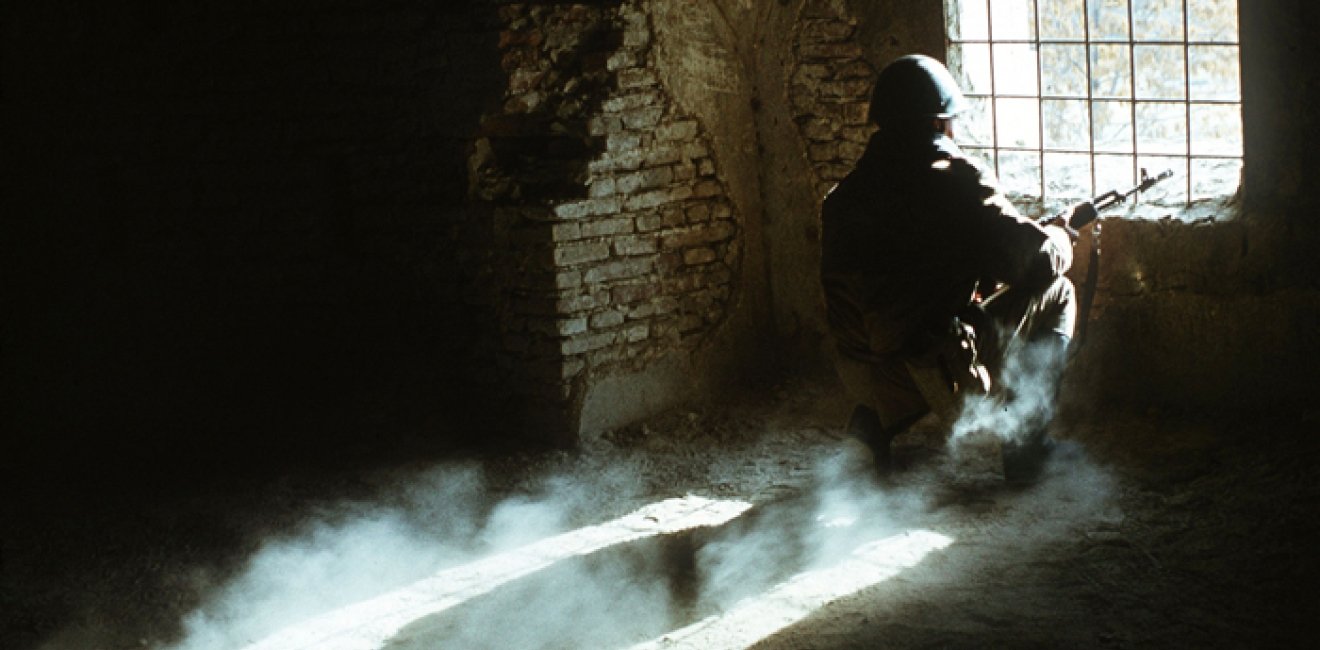Winston Churchill, Radio Free Kabul and Soviet POWs in Neutral Switzerland, 1982-1984
A 1984 document shows the intersection of Soviet POWs, the Red Cross, Radio Kabul, and Winston Churchill MP. Liliane Stadler tells the story.

A blog of the History and Public Policy Program
A 1984 document shows the intersection of Soviet POWs, the Red Cross, Radio Kabul, and Winston Churchill MP. Liliane Stadler tells the story.

On November 9, 1984, Rudolf Friedrich received a letter from someone named Winston S. Churchill.
The author of the document was not – as it might at first appear – Sir Winston Churchill, the British Prime Minister from 1940 to 1945 and from 1951 to 1955. Rather, it was his grandson, Winston Churchill MP. What is more, Mr. Churchill’s letter addressed Rudolf Friedrich as the Swiss Minister of Justice. Yet Mr. Friedrich was no longer Minister of Justice either, having resigned for health reasons in October that year.
In other words, this letter is a bit of a paradox.
Its subject matter, on the other hand, was a serious one, and one which has hitherto received scarcely any attention in the secondary literature.
Mr. Churchill wrote of Yuri Povarnitsine, a Russian prisoner of war (POW), who had been captured in Afghanistan during the early stages of the Soviet occupation. In fact, Mr. Povarnitsine was a rather unusual POW. He had been one of the first to be transferred to Switzerland for internment on the basis of an informal agreement between the Soviet Union and the International Committee of the Red Cross (ICRC).
In January of 1982, these two parties had signed a memorandum of understanding, giving the ICRC permission to extract Soviet soldiers, captured by the mujahedeen in Afghanistan, from their captors and to bring them to Switzerland for a period of two years. In exchange, the ICRC hoped to regain access to Afghan territory, from which it had been expelled in early 1980, effectively depriving Afghan civilians of the ICRC’s humanitarian assistance and the Afghan prison population of the ICRC’s inspection visits.
As Mr. Churchill explained in his letter, Mr. Povarnitsine was among a group of Soviet prisoners who were eventually released in June of 1984, having reached the end of their two-year internment period. He and one of his fellow internees, Viktor Sintchouk, then petitioned the Swiss authorities to be able to remain in Switzerland instead of returning to the Soviet Union.
The petition gave rise to considerable tension between the Soviet government, on whose behalf the ICRC had brought the prisoners to Switzerland, and the Swiss government, which had administered their internment on behalf of the ICRC. It was also a point of considerable debate amongst both the Swiss and the foreign press.
As Mr. Churchill wrote in his letter, Mr. Povarnitsine had participated in this debate by giving interviews to Western journalists. In these interviews, he was highly critical of the Soviet government, accusing its representatives of lying to Soviet soldiers about the reasons for going to war in Afghanistan. Yet more importantly, he speculated that, should he be repatriated to the Soviet Union, he would either be imprisoned or shot as a traitor.
Now, where does Mr. Churchill fit in? At the time of writing, Mr. Churchill was a conservative member of the British House of Commons. He was also the president of an organization called Radio Free Kabul. Prior to agreeing to be transferred to Switzerland, Youri Povarnitsine had made one of his first critical statements of the Soviet government on Radio Free Kabul, whose purpose it was to encourage defections amongst the Soviet forces in Afghanistan. Other members of the organization included Lord Nicholas Bethell, member of the British House of Lords and chairman of the European Parliament’s committee on human rights, as well as public figures such as the French journalist Bernard-Henri Lévy.
In reaching out to the Swiss government – or in Mr. Churchill’s case to Mr. Friedrich – their principal concern was that the Soviet prisoners, who had been transferred to Switzerland, should not be repatriated to the Soviet Union after the end of their two-year internment period, for fear that they would be punished as deserters. The Swiss weekly magazine Schweizer Illustrierte even quoted Mr. Churchill as saying that “death awaits these lads at home.”[1]
Similar letters like Mr. Churchill’s exist from Lord Bethell, addressed to the Swiss embassy in London. There are also letters from concerned members of the Swiss public, as well as from numerous Swiss and foreign newspapers and television stations, inquiring into the well-being of the Soviet internees and as to their eventual repatriation. Many voiced concerns about the fact that the internees were carefully shielded from public view and given no opportunities to receive visits other than the mandatory ones from the Soviet embassy and from the ICRC.
Yuri Povarnitsine did eventually receive political asylum in Switzerland in 1986. After his release in 1984, he first received a temporary residence permit and he settled in the French-speaking part of Switzerland.
It is difficult to determine to what extent Mr. Churchill’s letter to Rudolf Friedrich played a part in this development. First, considering that Mr. Friedrich was no longer in office and second, considering that Mr. Churchill was not the only petitioner for Mr. Povarnitsine’s cause.
One might therefore ask: Why does this particular document matter for the historical record?
It matters for three reasons:
The November 9, 1984, letter from Winston S. Churchill to Rudolf Friedrich can be found on the online database Dodis of the research center Diplomatic Documents of Switzerland: dodis.ch/57277.
[1] Ruedi Rohr, Schweizer Illustrierte, «Die Burschen erwartet zuhause der Tod», 19 March 1984, J1.301#2002/197#549*(sic), Schweizerisches Bundesarchiv (CH-BAR), Berne, Switzerland.


A leader in making key foreign policy records accessible and fostering informed scholarship, analysis, and discussion on international affairs, past and present. Read more


The Cold War International History Project supports the full and prompt release of historical materials by governments on all sides of the Cold War. Read more



